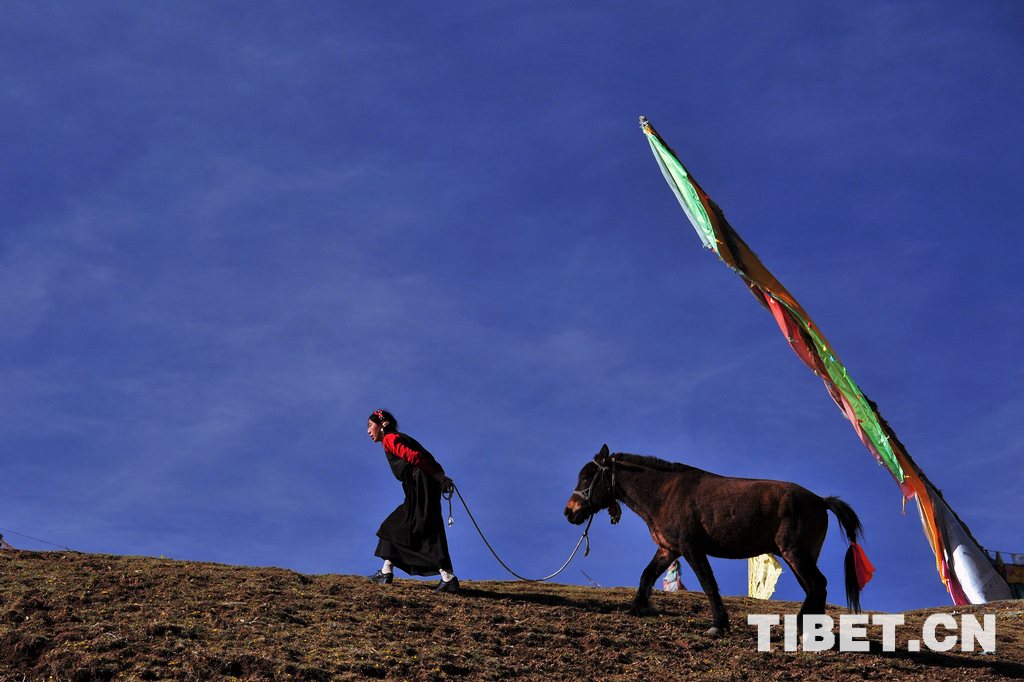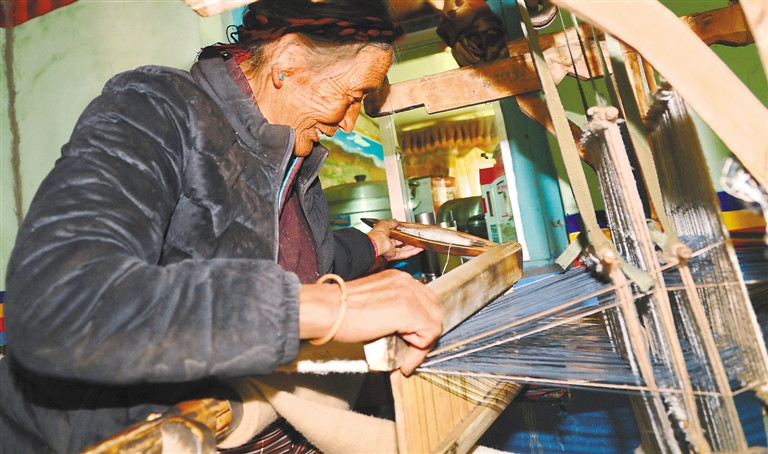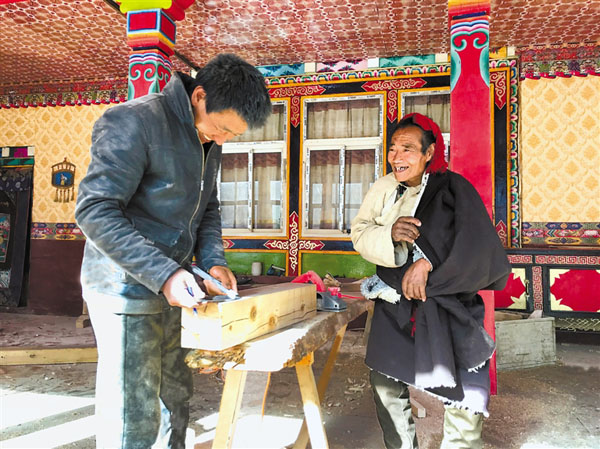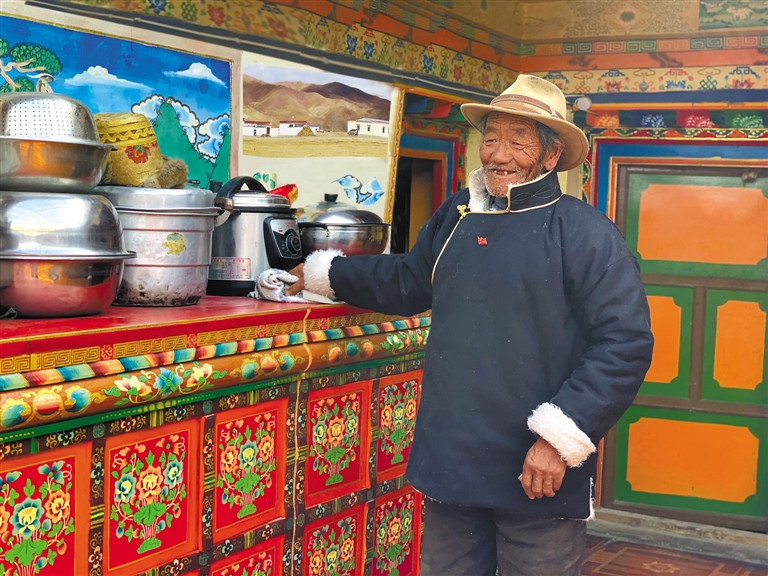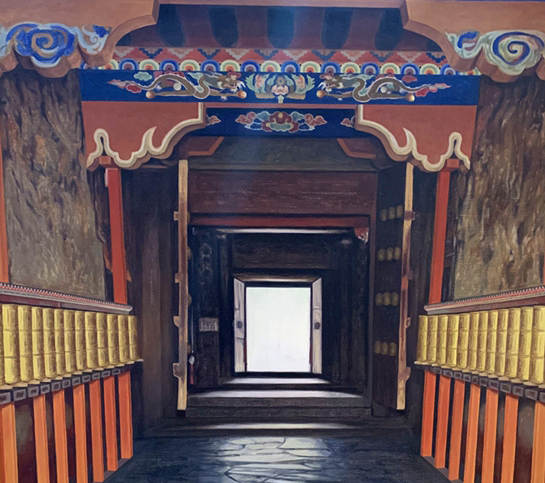Emancipated serf Dorje Phuntsok: I am more than willing to help my fellow villagers
74-year-old Dorje Phuntsok lives in Shodo Village, Shodo Township, Lhorong County, Chamdo City, southwest China's Tibet. He has a strong body and likes to walk around the village. He also likes to help others. The villagers like him very much.
Looking back at the time 60 years ago, Dorje Phuntsok frowns and says that at that time, in addition to his parents, he also had a younger sister. From the beginning of his memories, he engaged in heavy farming work, day after day, year after year.
"I once saw a few people who were too tired to work and wanted to take a rest. But they were discovered by the serf owner, and they were severely beaten by the serf owner with a long whip, so I didn't dare take a rest no matter how tired I was."
He saw the brutality of the serf owners first-hand, which made young Dorje Phuntsok gloomy. Other serfs were afraid of suffering from the whip. They didn't dare speak out against the serf owner.
"At that time, life was very bitter. Our clothes didn't cover our bodies, and there wasn't enough food. Sometimes a person died, and many serfs went to fight over the clothes of the deceased," Dorje Phuntsok said, shaking his head with sadness showing in his eyes.
Back then, the serf owner would lend ewes to the serfs, but they were not free. Before the ewes were returned, the serfs had to pay 25 kilograms of grain each year. If the ewes died, the serf owners would use this as an excuse to demand more grain payments. At that time, there was not enough grain in Dorje Phuntsok's house, and the serf then changed the payment to butter, but this was also impossible for Dorje Phuntsok's family to pay.
"How could we have paid the taxes? We didn't have enough food to eat or clothes to wear for ourselves."
After democratic reforms, Dorje Phuntsok's family of four was given 12 mu (1 mu = 0.165 acres) of land, a two-room house, a mule and a yak, as well as various production materials such as grains and seed.
In 1982, Dorje Phuntsok started a small business with loans from the bank. The income was very good and his living conditions got better and better. He also did his best to help the other villagers. And his neighbors respected him.
"I am more than willing to help my fellow villagers," said Dorje Phuntsok.
Editor:Tommy Tan.
Tibet Stories

The story of Chosang, a former serf
"My life experience has fully demonstrated that without the Communist Party, there would be ...
Editor’s Choice
- Qinghai-Tibet Plateau plays key role in enhancing East Asian monsoon under global warming
- Commentary: 14th Dalai Lama's ebbing influence in Tibet
- Top political adviser praises work of religious committee
- Qinghai discovers black stork breeding nest for the first time
- 11th Panchen Lama conducts research and Buddhist activities in Lhasa

